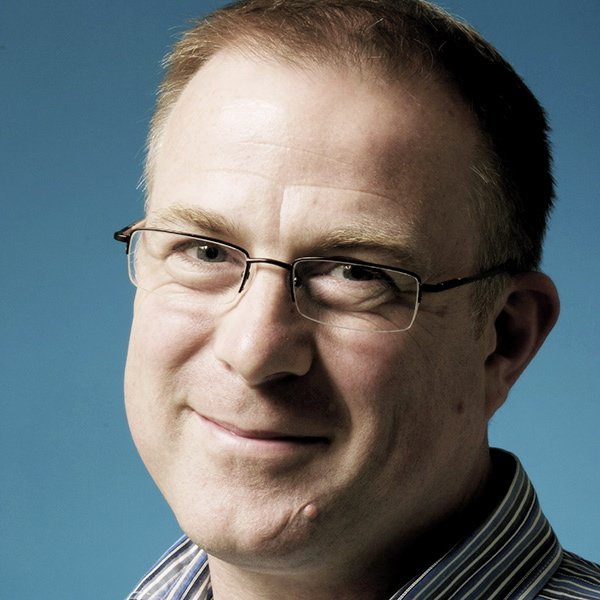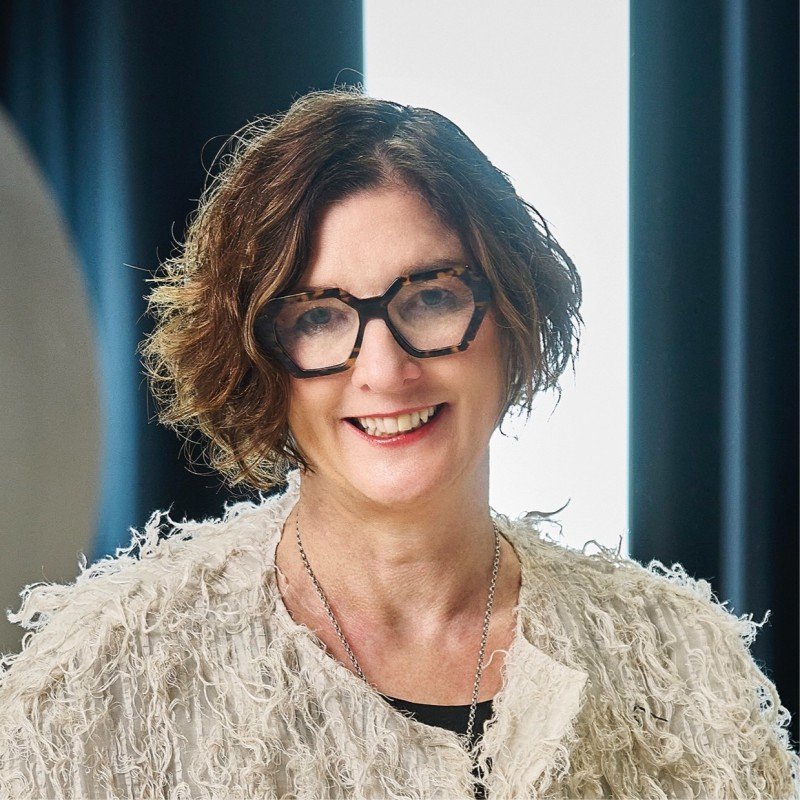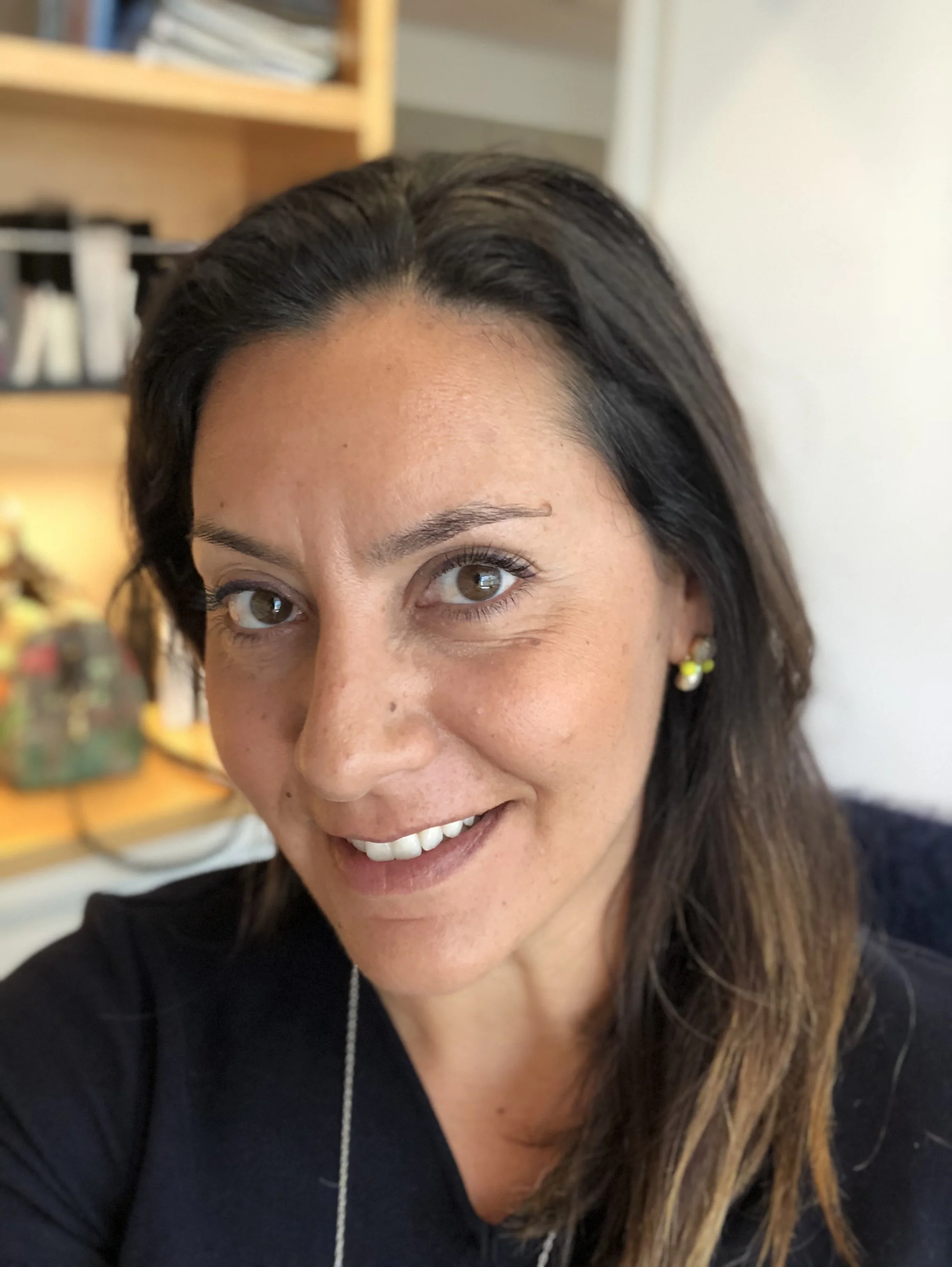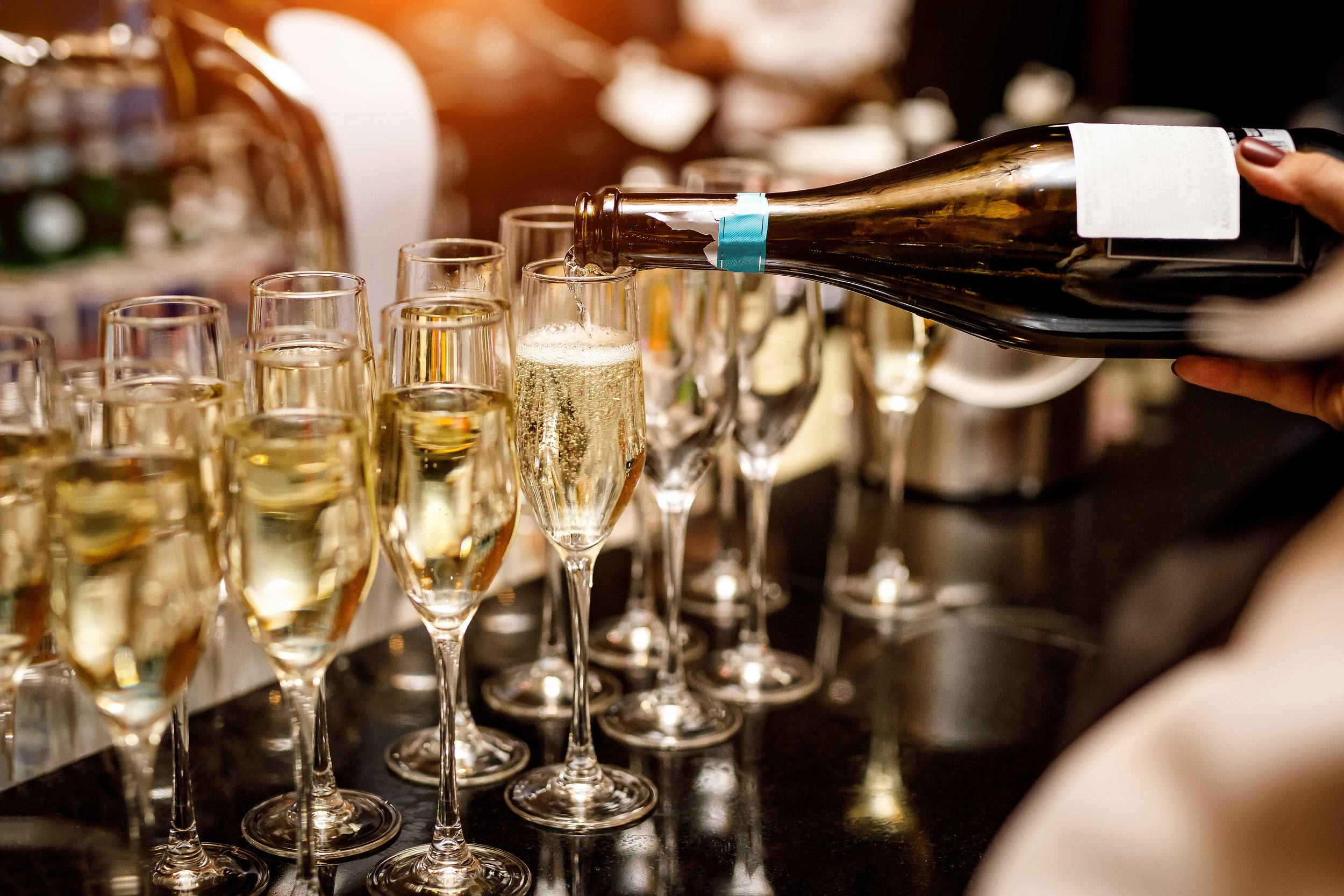
Day 2
Wed 18 June
From vision to impact: creating meaningful change
The Milkmaid - Johannes Vermeer, c. 1660
Morning - 09:00 to 10:30
Program subject to change
Opening day 2
Charting the course: today's roadmap to meaningful change
Introduced by the 30UNDER30 mentorship program
-
In a rapidly evolving cultural landscape, how can institutions drive lasting impact? This session sets the stage for the day by exploring key strategies for meaningful change—aligning vision with action, measuring success beyond numbers, and embracing innovation. Through thought-provoking insights, speakers will outline a roadmap for cultural leaders to navigate challenges, foster engagement, and create transformative experiences that resonate with audiences and communities alike.
Keynote
Art, AI, & leadership on the jagged frontier
🇺🇸 Robert Stein, National Gallery of Art Washington DC
-
The past two years we’ve seen a whirlwind of development in the field of AI. These new technologies are already changing the way we work and seem poised to change our world in very significant ways. How do we as cultural leaders wrap our minds around the pace of these changes and what can we do to prepare for the future while taking advantage of these powerful tools today?
In this talk, Robert Stein will share with us some ways that leaders can approach these daunting challenges with confidence and vision. We will unpack strategic predictions for what the future of AI might hold for arts practitioners and how we can plan for that future. Art, and the indelible spark that human creativity brings, will be even more important as new technologies take hold and transform our lives.
Keynote
Reframing impact: the value cultural institutions deliver
🇬🇧 Andrew McIntyre, Morris Hargreaves McIntyre • 🇬🇧 Debbie Spence, Morris Hargreaves McIntyre
-
What if impact isn’t what you’ve been told to measure? This keynote challenges cultural institutions to stop counting and start connecting. Andrew McIntyre and Debbie Spence introduce MHM’s Spectrum of Audience Impact—a practical framework that shifts the focus from outputs to outcomes, from reach to resonance. Discover how to understand your value in ways that are emotional, intellectual and social—not just statistical. This is about redefining success, deepening engagement, and positioning your institution as a vital force in society.
Morning Tea & Coffee - 10:30 to 11:00
CONCURRENT SESSIONS - 11:00 to 12:15
Your choice of 60 minute sessions with 2 consecutive presentations concluded with Q&A
Case Studies
Theme: Tune in to audiences with insight, intention and data
Defying preconceptions: Dutch National Ballet & Opera's approach to audience building
🇳🇱 Louise Meijer, Dutch National Opera and Ballet
-
This presentation explores Dutch National Opera & Ballet's strategic approach to audience development, focusing on the practical methods implemented to build a more diverse and engaged audience ecosystem. Not shying away from talking money, Louise will share how moving beyond traditional marketing tactics to build audience initiatives that complement programming choices, can create meaningful connections with new communities while respecting artistic heritage, and motivate ticket sales. Her experience demonstrates that building an audience that reflects society's diversity strengthens both institutional sustainability and ability to serve as cultural connectors in an evolving landscape.
Making an impact: the power of brand, voice and strategy
🇬🇧 Hugo Mintz, Edinburgh International Festival • 🇬🇧 Sarah Cockburn, Edinburgh International Festival
-
Making an impact in the world's busiest arts marketplace is not only about bold ideas—it’s about consistency, clarity and building lasting brand equity.
Join the Heads of Brand & Campaigns and Communications & Digital at the Edinburgh International Festival as they reveal how a two-speed approach is fundamental to driving real change. Learn how to balance short-term sales goals with long-term brand awareness, harness data to shape strategy, and secure organisational buy-in to create lasting impact – drawing lessons from the world’s largest annual cultural celebration, second in attendance only to the Olympics.
Chaired by 🇦🇺 Janine Collins, J9
Case Studies
Theme: Crafting landmark culture through resonant storytelling
The Whale: creating a sustainable attraction with global impact
🇩🇪 Tim Ventimiglia, Ralph Appelbaum Associates • 🇳🇴 Hanne Strager, The Whale
-
As a new non-profit organization “The Whale” seeks to become a new educational destination attraction on the remote arctic peninsula of Andenes Norway with a global impact. A stunning building designed by Dorte Mandrup Architects of Copenhagen is conceived in harmony with the site perched on the edge of the arctic continental shelf - a fertile ocean feeding ground where countless whales have congregated for millennia. The design team of Ralph Appelbaum Associates and Hanne Strager (founder and exhibition project manager) will discuss how we are working with the local community, scientists, historians, multimedia designers (Tamschick Media+Space) and artists to design this unique attraction with the global ambition of inspiring empathy and to promote ocean awareness and conservation.
Matthew Wong: how to transform an exhibition about an unknown artist into an impactful blockbuster
🇳🇱 Harma van Uffelen, Van Gogh Museum • 🇳🇱 Corinne Jongh, Van Gogh Museum
-
One of the Van Gogh Museum's most triumphant blockbuster exhibitions united two visionary artists across time, Vincent van Gogh and the previously unknown, to the Dutch, Chinese-Canadian artist Matthew Wong (1984-2019). Despite Wong's obscurity in the Netherlands, his emotionally charged, vibrant canvases captivated Dutch audiences, echoing van Gogh's expressive power. This talk reveals the journey Harma van Uffelen and Corinne Jongh undertook to introduce Wong's extraordinary talent, crafting immersive experiences that explored profound themes of belonging and mental wellbeing. Through innovative educational programming and strategic marketing, they transformed an introduction to an unfamiliar artist into an exhibition that resonated deeply with visitors and became one of Van Gogh Museum’s great successes.
Chaired by 🇺🇸 Ryan Dodge, Smithsonian Institution
Case Studies
Theme: Transformation through collaboration and courage
Innovation under pressure: redesigning the Van Gogh Museum’s audioguide
🇳🇱 Lisa van den Bos, Van Gogh Museum • 🇦🇹 August Kampfer, NOUS Digital
-
How do you innovate when the stakes are high and failure could disrupt a world-class visitor experience? At the Van Gogh Museum, we faced this challenge while redesigning our widely used and highly rated audio guide. Instead of choosing between risky innovation or playing it safe, we tested bold ideas through prototypes with real visitors— starting almost a year before launch. By inviting feedback on unfinished work, we reduced risk while preserving creativity. This talk shares how creative risk mitigation enabled confident decisions, helped us prioritize what mattered, and sparked new ways to co-create meaningful experiences with our audience.
Rebranding FOMU: a bold transformation from within
🇧🇪 Isabelle Willems, FOMU
-
In 2024, FOMU embarked on a comprehensive rebranding to translate its socially engaged mission into a compelling visual identity. The challenge was to develop a visual language that resonated both internally and within the broader community. A strong brand requires bold partnerships and dedicated ambassadors—every FOMU team member contributed, from curators to front-desk staff. This process demanded openness, courage, and ambition to align branding with core values. This talk examines the journey, challenges, and lasting impact of a purpose-driven branding.
Chaired by 🇫🇷 Alexia Jacques-Casanova, Artizest
Case Studies
Theme: Audience by design and intelligence in performing arts
Optimising for occupancy: a smarter approach to concert promotion at Het Concertgebouw
🇳🇱 Gerben ten Thij, Het Concertgebouw
-
Het Concertgebouw has adopted a marketing strategy that prioritises seat occupancy across its concert season. Always-on social media advertising plays a central role in this approach. By using data to identify which concerts need extra support, the marketing team can allocate budget more intelligently and increase visibility where it’s most needed. This helps ensure a more balanced audience spread and contributes to stronger overall attendance.
House of Music Hungary: complexity in content and communication
🇭🇺 Krisztina Mezős, House of Music Hungary
-
One of the House of Music Hungary’s most distinctive program series is the Secret Concert, which also holds strategic importance from a communication perspective. It serves not only program-level promotional goals but also broader institutional branding objectives. The sense of secrecy and exclusivity helps shape a shared community identity, while the joy of discovery—one of the House’s core values—stands at the heart of the concept. The series provides a strong foundation for organic, visually engaging, and creative content production, making it an effective tool for reaching a younger, open-minded audience and strengthening the institution’s position as an innovative, experience-driven cultural player.
Chaired by 🇦🇺 Fiona Allan
Workshop
Branding with purpose: stand out for what you stand for
🇪🇸🇬🇧 Cecilia Martin Abad, Culture Connects
-
An energising workshop that equips arts professionals with tools to create a brand-driven purpose.
In a time when impact and authenticity matter more than ever, this session explores how branding can drive innovation, shift perspectives, and build emotional connections. Through case studies, peer learning, hands-on exercises, and purpose-led strategies, participants will explore how branding not only helps institutions stand out, but also stand for a better world. The goal: to shape a strong brand purpose that inspires support, transforming arts institutions into spaces of possibility bringing change close to people’s lives.
12:30 to 13:00
Optional Activities
Concert at Utrecht Conservatory hosted by Concertgebouw
or slow looking session of the permanent collection at the Rijksmuseum
Limited availabilities - CLICK HERE TO REGISTER
13:15 to 14:15
Lunch
Networking lunch at Rijksmuseum
Early Afternoon
CONCURRENT SESSIONS - 14:15 to 15:15
Your choice of 60 minute sessions with 2 consecutive presentations concluded with Q&A
Case Studies
Theme: Tune in to audiences with insight, intention and data
Defying preconceptions: Dutch National Ballet & Opera's approach to audience building
🇳🇱 Louise Meijer, Dutch National Opera and Ballet
-
This presentation explores Dutch National Opera & Ballet's strategic approach to audience development, focusing on the practical methods implemented to build a more diverse and engaged audience ecosystem. Not shying away from talking money, Louise will share how moving beyond traditional marketing tactics to build audience initiatives that complement programming choices, can create meaningful connections with new communities while respecting artistic heritage, and motivate ticket sales. Her experience demonstrates that building an audience that reflects society's diversity strengthens both institutional sustainability and ability to serve as cultural connectors in an evolving landscape.
Making an impact: the power of brand, voice and strategy
🇬🇧 Hugo Mintz, Edinburgh International Festival • 🇬🇧 Sarah Cockburn, Edinburgh International Festival
-
Making an impact in the world's busiest arts marketplace is not only about bold ideas—it’s about consistency, clarity and building lasting brand equity.
Join the Heads of Brand & Campaigns and Communications & Digital at the Edinburgh International Festival as they reveal how a two-speed approach is fundamental to driving real change. Learn how to balance short-term sales goals with long-term brand awareness, harness data to shape strategy, and secure organisational buy-in to create lasting impact – drawing lessons from the world’s largest annual cultural celebration, second in attendance only to the Olympics.
Chaired by 🇦🇺 Janine Collins, J9
Case Studies
Theme: Crafting landmark culture through resonant storytelling
The Whale: creating a sustainable attraction with global impact
🇩🇪 Tim Ventimiglia, Ralph Appelbaum Associates • 🇳🇴 Hanne Strager, The Whale
-
As a new non-profit organization “The Whale” seeks to become a new educational destination attraction on the remote arctic peninsula of Andenes Norway with a global impact. A stunning building designed by Dorte Mandrup Architects of Copenhagen is conceived in harmony with the site perched on the edge of the arctic continental shelf - a fertile ocean feeding ground where countless whales have congregated for millennia. The design team of Ralph Appelbaum Associates and Hanne Strager (founder and exhibition project manager) will discuss how we are working with the local community, scientists, historians, multimedia designers (Tamschick Media+Space) and artists to design this unique attraction with the global ambition of inspiring empathy and to promote ocean awareness and conservation.
Matthew Wong: how to transform an exhibition about an unknown artist into an impactful blockbuster
🇳🇱 Harma van Uffelen, Van Gogh Museum • 🇳🇱 Corinne Jongh, Van Gogh Museum
-
One of the Van Gogh Museum's most triumphant blockbuster exhibitions united two visionary artists across time, Vincent van Gogh and the previously unknown, to the Dutch, Chinese-Canadian artist Matthew Wong (1984-2019). Despite Wong's obscurity in the Netherlands, his emotionally charged, vibrant canvases captivated Dutch audiences, echoing van Gogh's expressive power. This talk reveals the journey Harma van Uffelen and Corinne Jongh undertook to introduce Wong's extraordinary talent, crafting immersive experiences that explored profound themes of belonging and mental wellbeing. Through innovative educational programming and strategic marketing, they transformed an introduction to an unfamiliar artist into an exhibition that resonated deeply with visitors and became one of Van Gogh Museum’s great successes.
Chaired by 🇺🇸 Ryan Dodge, Smithsonian Institution
Case Studies
Theme: Transformation through collaboration and courage
Stimulation or manipulation: courageously rethinking the immersive experience
🇳🇱 Femke Bijlsma, Kossmanndejong • 🇩🇪 Wolfgang Schreiner, NOUS Digital
-
Femke Bijlsma of Kossmanndejong and Wolfgang Schreiner of Nous Digital will talk about their firms’ recent collaboration on EHH Museum in Cornwall UK. Designed as a “documentary in space”, the audience is being immersed in the dramatic history of Second Anglo-Boer War (South Africa 1899-1902). The meticulous alignment of spatial elements with audio lead to a highly engaging, emotional experience. Visitors feel they are eye witness to a dramatic historic event and many walk out needing a tissue. Femke and Wolfgang will take you along behind the scenes of this co-production and share their gained insights, the benefits and risks, of this powerful form of storytelling.
Rebranding FOMU: a bold transformation from within
🇧🇪 Isabelle Willems, FOMU
-
In 2024, FOMU embarked on a comprehensive rebranding to translate its socially engaged mission into a compelling visual identity. The challenge was to develop a visual language that resonated both internally and within the broader community. A strong brand requires bold partnerships and dedicated ambassadors—every FOMU team member contributed, from curators to front-desk staff. This process demanded openness, courage, and ambition to align branding with core values. This talk examines the journey, challenges, and lasting impact of a purpose-driven branding.
Chaired by 🇫🇷 Alexia Jacques-Casanova, Artizest
Case Studies
Theme: Audience by design and intelligence in performing arts
Optimising for occupancy: a smarter approach to concert promotion at Het Concertgebouw
🇳🇱 Gerben ten Thij, Het Concertgebouw
-
Het Concertgebouw has adopted a marketing strategy that prioritises seat occupancy across its concert season. Always-on social media advertising plays a central role in this approach. By using data to identify which concerts need extra support, the marketing team can allocate budget more intelligently and increase visibility where it’s most needed. This helps ensure a more balanced audience spread and contributes to stronger overall attendance.
House of Music Hungary: complexity in content and communication
🇭🇺 Krisztina Mezős, House of Music Hungary
-
One of the House of Music Hungary’s most distinctive program series is the Secret Concert, which also holds strategic importance from a communication perspective. It serves not only program-level promotional goals but also broader institutional branding objectives. The sense of secrecy and exclusivity helps shape a shared community identity, while the joy of discovery—one of the House’s core values—stands at the heart of the concept. The series provides a strong foundation for organic, visually engaging, and creative content production, making it an effective tool for reaching a younger, open-minded audience and strengthening the institution’s position as an innovative, experience-driven cultural player.
Chaired by 🇦🇺 Fiona Allan
Workshop
Branding with purpose: stand out for what you stand for
🇪🇸🇬🇧 Cecilia Martin Abad, Culture Connects
-
An energising workshop that equips arts professionals with tools to create a brand-driven purpose.
In a time when impact and authenticity matter more than ever, this session explores how branding can drive innovation, shift perspectives, and build emotional connections. Through case studies, peer learning, hands-on exercises, and purpose-led strategies, participants will explore how branding not only helps institutions stand out, but also stand for a better world. The goal: to shape a strong brand purpose that inspires support, transforming arts institutions into spaces of possibility bringing change close to people’s lives.
Afternoon Tea & Coffee - 15:15 to 15:45
Late Afternoon - 15:45 to 17:00
Special Announcement
The future calling
🇫🇷 Corinne Estrada, Communicating the Arts
-
Corinne Estrada welcomes special guests to the stage to offer glimpses into what lies ahead—bold ideas, new horizons, and continued collaboration. As we look to the future, this moment marks an invitation to what comes next.
Keynote
Voices unsilenced: transforming museum narratives through personal memory
🇳🇱 Valika Smeulders, Rijksmuseum
-
The Rijksmuseum's groundbreaking slavery exhibition merged historical artifacts with personal narratives to create a new model of museum storytelling. Dr. Valika Smeulders reveals how centering individual stories within institutional spaces sparked nationwide dialogue and transformed visitor engagement. Her talk offers insights into creating exhibitions that challenge, connect, and drive social change.
Keynote
Art meets science: reimagining Getty's PST ART
🇺🇸 John Giurini, J. Paul Getty Museum • 🇺🇸 Yasmine Vatere, J. Paul Getty Foundation
-
Getty's ambitious third PST ART iteration ventured into the uncharted territory where art and science collide, revealing the complexity of bridging these disparate worlds. Spanning over 60 venues across Southern California, this quinquennial event empowered Getty to challenge conventional branding approaches and compelled the team to dismantle institutional silos to enable true collaboration.
Evening - 17:00 to 18:00
Visit - Private viewing of Operation Night Watch in the Gallery of Honour & Night Watch Gallery
Enjoy a private view of The Night Watch and other masterpieces in the Gallery of Honour. ‘Ask Me’ hosts will be present to share insights into the Rijksmuseum collection and Operation Night Watch — the museum’s most ambitious conservation project in its history.
Evening - 18:00 to 20:00
Cocktail Reception - Sponsored by Fabrique and Q42
Cocktail Reception in the iconic surroundings of the Rijksmuseum, sponsored by Fabrique and Q42.






































